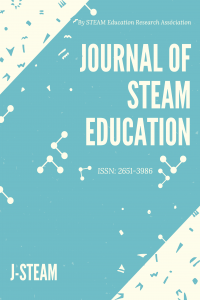Assessment of Solid Waste Management at Source in Compliance With Guidelines
Assessment of Solid Waste Management at Source in Compliance With Guidelines
Solid waste management poses a big challenge for many urban households, especially in developing countries. Overcrowding and informal settlements have emerged with illegal and indiscriminate waste disposal. Guidelines for proper management of solid waste are least observed at household level in such settings. The study was to assess solid waste management at source in compliance with guidelines among residents of Kawempe municipality, Kampala district. It was descriptive and analytical cross-sectional study design, where 385 household heads and local leaders were interviewed using questionnaires and interview guides. Only 37.9% of households complied with guidelines for solid waste management at source. Factors of waste management practices were waste reduction (p<.005), separation (p<.001), reuse (p<.001) and composting (p<.027). Determinants such as gender (p<.007), marital status (p<.016), educational level (p<.00), occupation (p<.007), household size (p<.025), medium of community sensitization (p<.00), enforcement of bi-laws (p<.005), type of waste generated (p<0.00) and waste storage method (p<.009) were implicated. Conclusively, compliance with guidelines in the management of household solid waste at source was still very low within the city.
Keywords:
Solid waste management, Compliance, Guidelines Kampala, Uganda,
___
- Abebaw, D. (2008). Determinants of Solid Waste Disposal Practices in Urban Areas of Ethiopia: A Household-Level Analysis. East African Social Science Research Review, 24(1), 1-14. https://doi.org/10.1353/eas.2008.0000
- Adzawla, W., Tahidu, A., Mustapha, S. and Azumah, S. B. (2019). Do socio-economic factors influence households’ sold waste disposal systems? Evidence from Ghana. Waste Management and Research, 37(1), 51-57. https://doi.org/10.1177/0734242X18817717
- Aisa, O. S. (2011). The role of households in solid waste management in East Africa Capital cities. [PhD Thesis, Wageningen University]. https://edepot.wur.nl/179704
- Al-Khatib, I. A., Arafat, H. A., Daoud, R. and Shwahneh, H. (2009). Enhanced solid waste management by understanding the effects of gender, income, marital status, and religious convictions on attitudes and practices related to street littering in Nablus - Palestinian territory. Waste Management, 29(1), 449-455. https://doi.org/10.1016/j.wasman.2008.02.004
- Al-Khatib, I. A., Monou, M., Abu Zahra, A. F., Shaheen, H. Q., and Kassinos, D. (2010). Solid waste characterization, quantification and management practices in developing countries. A case study: Nablus district – Palestine. Journal of Environmental Management, 91(5), 1131-1138. https://doi.org/10.1016/j.jenvman.2010.01.003
- Aryampa, H., Maheshwari, B., Sabiiti, E., Bateganya, N. L. and Bukenya, B. (2019). Status of Waste Management in the East African Cities: Understanding the Drivers of Waste Generation, Collection and Disposal and Their Impacts on Kampala City’s Sustainability. Sustainability, 11(19), 5523. https://doi.org/10.3390/su11195523
- Ashenafi, H. (2011). Determinants of Effective Household Solid Waste Management Practices: The Case of Ambo Town – West Showa Zone (Publication No. 508). [Master dissertation, Mekelle University]. https://opendocs.ids.ac.uk/opendocs/handle/20.500.12413/4489
- Banga, M. (2011). Household Knowledge, Attitudes and Practices in Solid Waste Segregation and Recycling: The Case of Urban Kampala. Zambia Social Science Journal, 2(1), 26-39. http://scholarship.law.cornell.edu/zssj/vol2/iss1/4
- Bello, I. A., Norshafiq, M., Ismail, B. and Kabbashi, N. A. (2016). Solid Waste Management in Africa: A Review. International Journal of Waste Resources, 6(2), 1-4. http://dx.doi.org/10.4172/2252-5211.1000216
- Blair, J. P. (2010). Book Review: Blakely, E. J., & Leigh, N. G. (2010). Planning Local Economic Development: Theory and Practice (4th ed.). Thousand Oaks, CA: Sage. Economic Development Quarterly, 24(4), 394-395. https://doi.org/10.1177/0891242410374959
- Cochran, W. G. (1977). Sampling Techniques. John Wiley & Son.
- Cruvinel, V. R. N., Marques, C. P., Cardoso, V., Rita, M., Novaes, C. G., Araújo, W. N., Angulo-Tuesta, A., Escalda, P. M. F., Galato, D., Brito, P. & Silva, E. N. (2019). Health conditions and occupational risks in a novel group: Waste pickers in the largest open garbage dump in Latin America. BMC Public Health, 19. https://doi.org/10.1186/s12889-019-6879-x
- Ishfaq, S., Puneet P., and Sukhwinder P. (2021). Implementation analysis of solid waste management in Ludhiana city of Punjab. Environmental Challenges, 2. https://doi.org/10.1016/j.envc.2021.100023.
- Komakech, A. J., Banadda, N. E., Kinobe, J. R., Kasisira, L., Sundberg, C., Gebresenbet, G., Vinnerås, B. (2014). Characterization of municipal waste in Kampala, Uganda. Journal of the Air & Waste Management Association, 64(3), 340-348. https://doi.org/10.1080/10962247.2013.861373
- Longe, E. O., Longe, O. O. and Ukpebor, E. F. (2009). People's perception on household solid waste management in ojo local government area in Nigeria. Iranian Journal of Environmental Health, Science and Engineering, 6(3); 201-208 http://www.bioline.org.br/pdf?se09031
- Mamady. K. (2016). Factors Influencing Attitude, Safety Behavior, and Knowledge regarding Household Waste Management in Guinea: A Cross-Sectional Study. Journal of Environmental and Public Health. http://dx.doi.org/10.1155/2016/9305768
- McAllister, J. (2015). Factors Influencing Solid-Waste Management in the Developing World (Publication No. 528). [Master dissertation, Utah State University]. https://digitalcommons.usu.edu/cgi/viewcontent.cgi?article=1537&context=gradreports
- Mukama, T., Ndejjo, R., Musoke, D., Musinguzi, G., Halage, A. A., Carpenter, D. O., Ssempebwa, J.C. (2016). Practices, Concerns, and Willingness to Participate in Solid Waste Management in Two Urban Slums in Central Uganda. Journal of Environmental and Public Health. https://doi.org/10.1155/2016/6830163.
- Nachalida, Y., Beverly, C. and Kirstin, R. (2017). Barriers to Effective Municipal Solid Waste Management in a Rapidly Urbanizing Area in Thailand. International Journal of Environmental Research and Public Health, 14 (9), 1013. https://doi.org/10.3390/ijerph14091013
- Ssemugabo. C., Wafula. S. T., Lubega. G. B., Ndejjo. R., Osuret. J., Halage. A. A. and Musoke, D. (2020). Status of Household Solid Waste Management and Associated Factors in a Slum Community in Kampala, Uganda. Journal of Environmental and Public Health. https://doi.org/10.1155/2020/6807630
- Wadehra S. and Mishra A. (2017). Managing waste at the household level: Field evidence from Delhi. International growth center (Ref. No: C-35324-INC-1). https://www.theigc.org/wp-content/uploads/2017/10/Wadehra-et-al-Final-report_cover.pdf
- ISSN: 2651-3986
- Başlangıç: 2017
- Yayıncı: Şahin İDİN
Sayıdaki Diğer Makaleler
Learning With STEM Is Not Difficult At All!
Mustafa ÇEVİK, Özge ÇEVİK, Yunus BASAR, Büşra BİÇER
Assessment of Solid Waste Management at Source in Compliance With Guidelines
Mehmet Ali KÜPELİ, Sedef CANBAZOĞLU BİLİCİ, S.selcen GUZEY
Tusyanah TUSYANAH, Ismiyati ISMİYATİ, Edy SURYANTO, Nurdian SUSİLOWATİ
Assessment of STEM Projects: Tacit Perspective of Turkish Science Education
